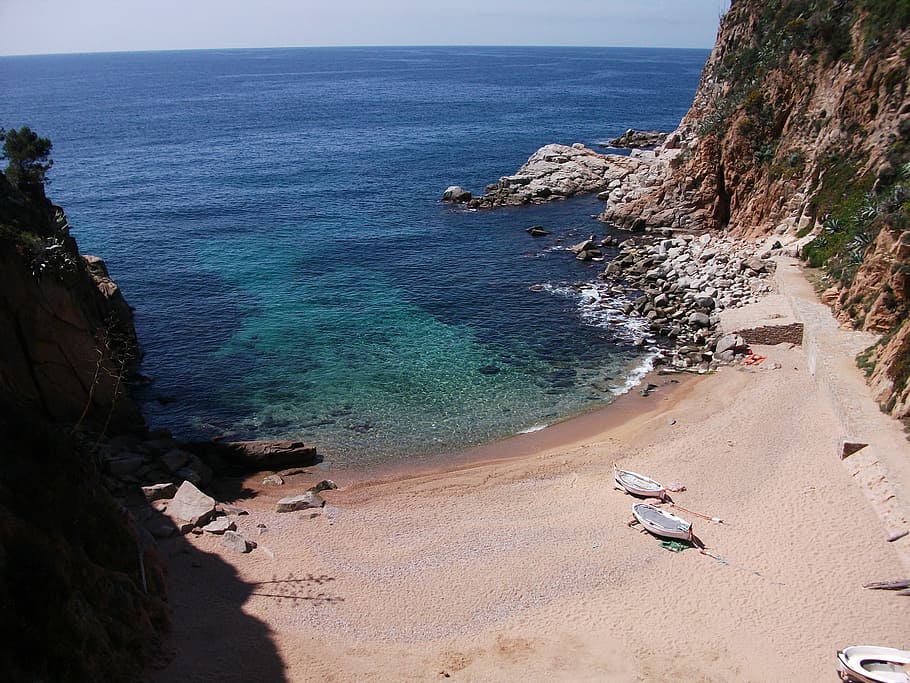“Naturists” have long enjoyed the pleasures of nude sunbathing on certain beaches in Catalonia, Spain. The warm sun on bare skin, no tan lines, the freedom of being surrounded by like-minded companions.
But now they’re angry as this camaraderie is being threatened.
“Before, people would arrive at a nude beach and either leave or strip down,” said 56-year-old Segimon Rovira. “Now they stay and keep their swimsuit on. But what they don’t realise is that if there are a lot of them, they end up making us uncomfortable. It’s a lack of respect.”
Now Rovira and other naturists in Catalonia are fighting back, with a campaign aimed at protecting the decades-long tradition associated with 50 or so of the region’s beaches.
“Nudism is not banned in Spain, you can do it on any beach,” said Rovira, who leads the Naturist-Nudist Federation of Catalonia. “But so as not to bother people, we prefer to go to beaches that have traditionally been nudist and where most people are naked. We want people to respect this.”
Rovira’s association sent a letter to the Catalan government complaining of “the discrimination that nudists face on the beaches of Catalonia” and asking them to intervene.
They are requesting stronger measures to ensure that their rights to enjoy nude sunbathing be respected by those who prefer to wear a swimsuit. To start with, they would like stronger signage for nude beaches and a public awareness campaign that could help foster respect for naturism.
What is it that has caused what local media have called this “textile invasion”?
In large part it’s a measure of the successful tourism in the area and in another part it’s that nudists were enjoying some of the most beautiful and secluded beaches in Catalonia.
But as people travel more, and popular destinations become ever more crowded, bloggers and social media sites highlight the region’s most pristine and hidden beaches, often omitting mention of their longstanding ties to nudism.
Some beachgoers simply ignore the signs informing them that it is a “nudist beach”. Perhaps others don’t realize that they are violating naturist etiquette by not stripping down.
Whatever the reason, according to Rovira, “We’ve lost a bit of civility.”
He adds that, “There are nudists who have stopped going to some beaches because they are too crowded and there are too many people wearing swimsuits and they feel uncomfortable”.
Other nudists have chosen to remain clothed, dissuaded by the throngs of smartphone-wielding visitors eager to share the beautiful backdrop with their online followers, said Rovira. “People that are naked don’t want to end up with their photos on social media.”
Some nudists have continued to practice their ways, only to be embarrassed by giggles, stares and, at times, disparaging remarks. “Unfortunately, the women are usually more stared at or harassed,” said Rovira. “So, they are discriminated against twice over; for being nudists and for being women.”
“Starting to practise naturism when you’re surrounded by people in clothing is very complicated,” said Rovira. “That’s why we think it’s important to have nudist spaces where the majority of people are nude so that people are encouraged to try it.”
What is the great attraction of being nude on a beach, you may wonder? According to Rovira, “There’s no comparison between swimming in the nude and in swimwear. You’re more free, more calm and relaxed.”












